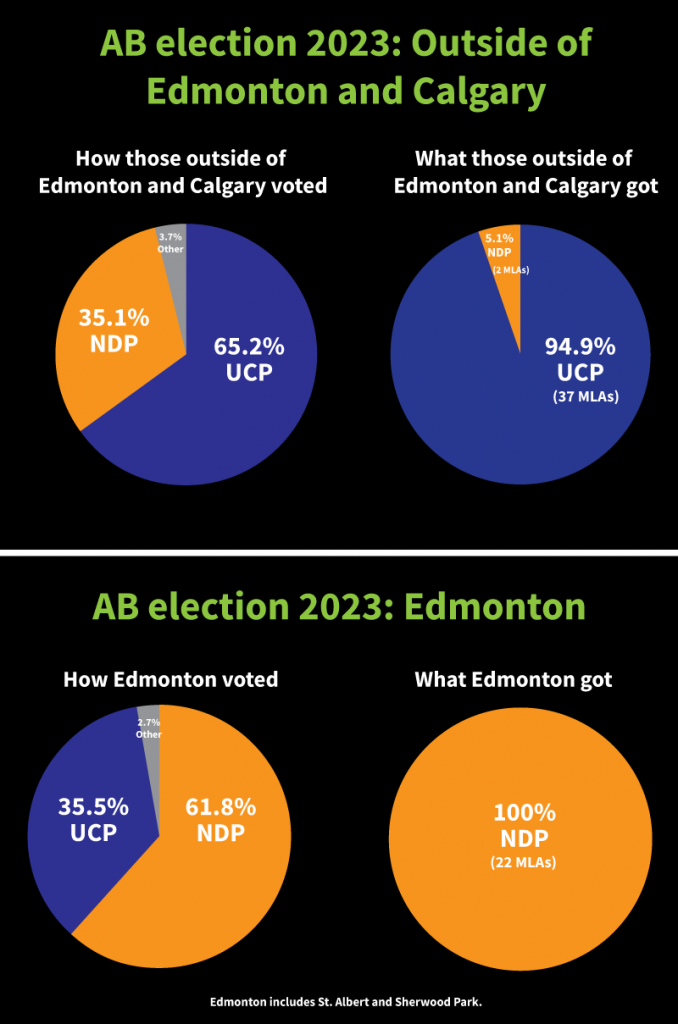Danielle Smith’s announcement of an advisory “council” of unelected UCP candidates in Edmonton is no substitute for fair and accurate representation of Edmonton voters in the legislature.
About 36% of Edmonton voters chose UCP. They voted for representation―not a backroom focus group. Yet first-past-the-post denied Edmonton’s UCP voters representation. With 62% of the vote, the NDP occupy all 22 seats in Alberta’s capital city
Smith’s well-intentioned advisory council is next to useless to Edmonton’s UCP voters. How would Edmonton voters contact the council members? When it comes to actual representation, are Edmonton’s UCP voters to rely on an MP from Peace River to advocate for their interests?
When Danielle Smith chooses her cabinet, there will be no possibility of a Minister from Edmonton.
As troubling as this is, rural NDP voters in Alberta are in an equally pitiful situation.
Despite the NDP earning about 1/3 of the vote in outside of Calgary and Edmonton, only two NDP MLAs were elected outside of those cities. Millions of voters are left without a voice.
The problem of a single party sweeping all the seats in a region is endemic to first-past-the-post, both at the federal and provincial levels.
In 2016, after being completely shut out of Atlantic Canada despite winning about 40% of the vote, the Conservatives came up with a “buddy system” scheme whereby Conservative MPs would be paired with regions thousands of miles away.
In 2019, every MP in Alberta and Saskatchewan with the exception of one NDP MP came from the Conservative Party, despite one third of voters choosing other parties. When Justin Trudeau appointed his cabinet, he had to appoint a “government advisor” from the West because there were no Liberal MPs from that area .
Federally and provincially, first-past-the-post makes us look more divided than we really are.
Winner-take-all voting leaves millions of voters feeling shut out, exacerbates the tensions between various parts of the country and magnifies the rural-urban divide.
With proportional representation, the MPs elected in each region of the country would closely match the popular vote, ensuring almost every voter has a representative who shares their values, and reflecting the diversity of political viewpoints in each region.
Enough of the buddy systems, unaccountable special appointees and powerless advisory councils.
Regions don’t vote: people do. It’s time they were represented.
Read our press release: First-past-the-post delivers Alberta a polarized, two-party system

